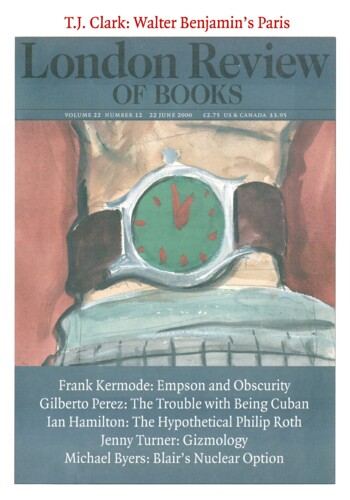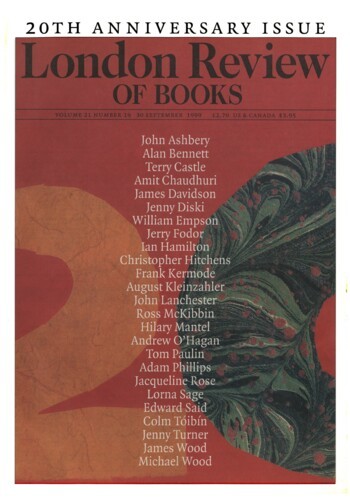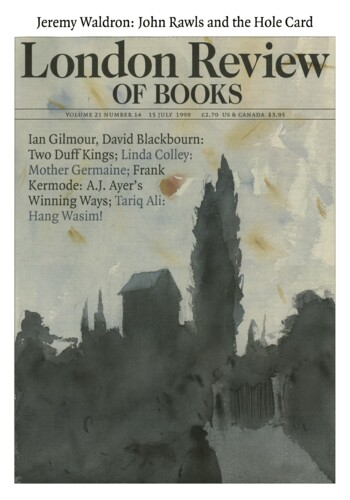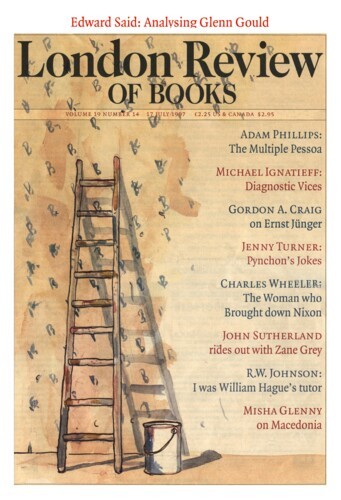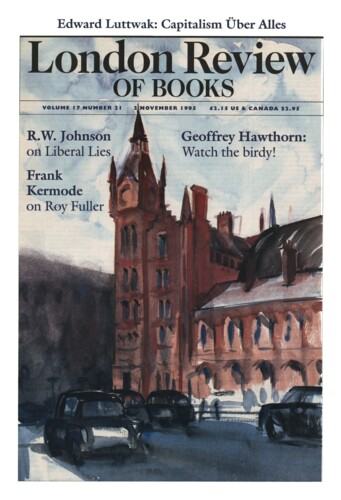Top of the World: Douglas Coupland
Jenny Turner, 22 June 2000
Douglas Coupland has a special relationship with furniture. A page in the March 2000 issue of Wallpaper magazine puffs his own designs for a target-shaped occasional table, a Damien Hirst-spotted desk and the ‘DNA Band’ standing light. A Sunday-supplement profile-writer caught him bulk-buying ceramic vases which he intends to ‘repurpose’ at a later date; when at home in Vancouver, we learn from the same article, he ‘rearranges his furniture weekly’. In his new novel, a big-shot Hollywood film producer explains how he goes about recruiting young assistants. ‘What I normally do is put ads in the paper advertising Eames furniture at ridiculously low prices … Anybody who answers that ad really quickly is de facto smart, alert, greedy and hip.’ ‘I turned into furniture,’ is what the characters in his first book, Generation X, say when they are intoxicated or exhausted and on the point of crashing out.‘
